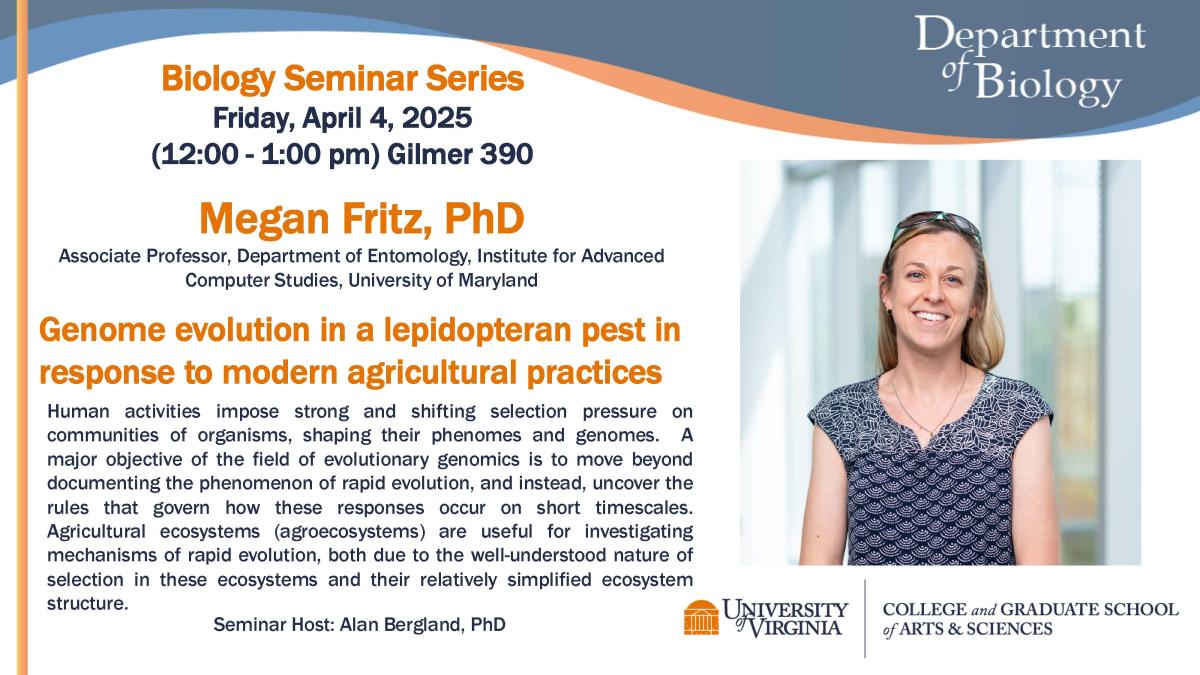Seminar Series: Megan Fritz

Join us Friday, April 4 (12-1pm), Gilmer Hall 390, for the Biology Seminar Series:
Megan Fritz, PhD
Associate Professor, Department of Entomology, Institute for Advanced Computer Studies, University of Maryland
Genome evolution in a lepidopteran pest in response to modern agricultural practices
Human activities impose strong and shifting selection pressure on communities of organisms, shaping their phenomes and genomes. A major objective of the field of evolutionary genomics is to move beyond documenting the phenomenon of rapid evolution, and instead, uncover the rules that govern how these responses occur on short timescales. Agricultural ecosystems (agroecosystems) are useful for investigating mechanisms of rapid evolution, both due to the well-understood nature of selection in these ecosystems and their relatively simplified ecosystem structure. Furthermore, the study of insect resistance to agricultural management practices has practical significance, because it leads to crop failure and economic losses. The phytophagous North American insect pest, Helicoverpa zea, has recently evolved high levels of resistance to corn and cotton expressing transgenes from the bacterium Bacillus thuringiensis (Bt). Our work has examined the genome architecture of field-evolved Bt resistance in H. zea, using whole genome sequencing, differential gene expression analysis, and quantitative genetic assays. We show that adaptation to Bt crops by H. zea does not result from de novo mutation at a single locus but is the result of multi-locus selection on genetic variants across the genome. Interestingly, one moderate effect locus includes a cluster of paralogous genes, and up to 8 copies of this gene cluster are present in resistant H. zea populations. Our findings provide empirical evidence that evolutionarily novel resistance traits can arise as a result of polygenic adaptation from standing genetic variation. Knowledge of this resistance mechanism can be leveraged to improve insect resistance management programs and for development of future plant-incorporated pesticidal technologies.
Hosted by: Alan Bergland, Phd
Add to Calendar
Apple • Google • Office 365 • Outlook • Yahoo
View event flyer